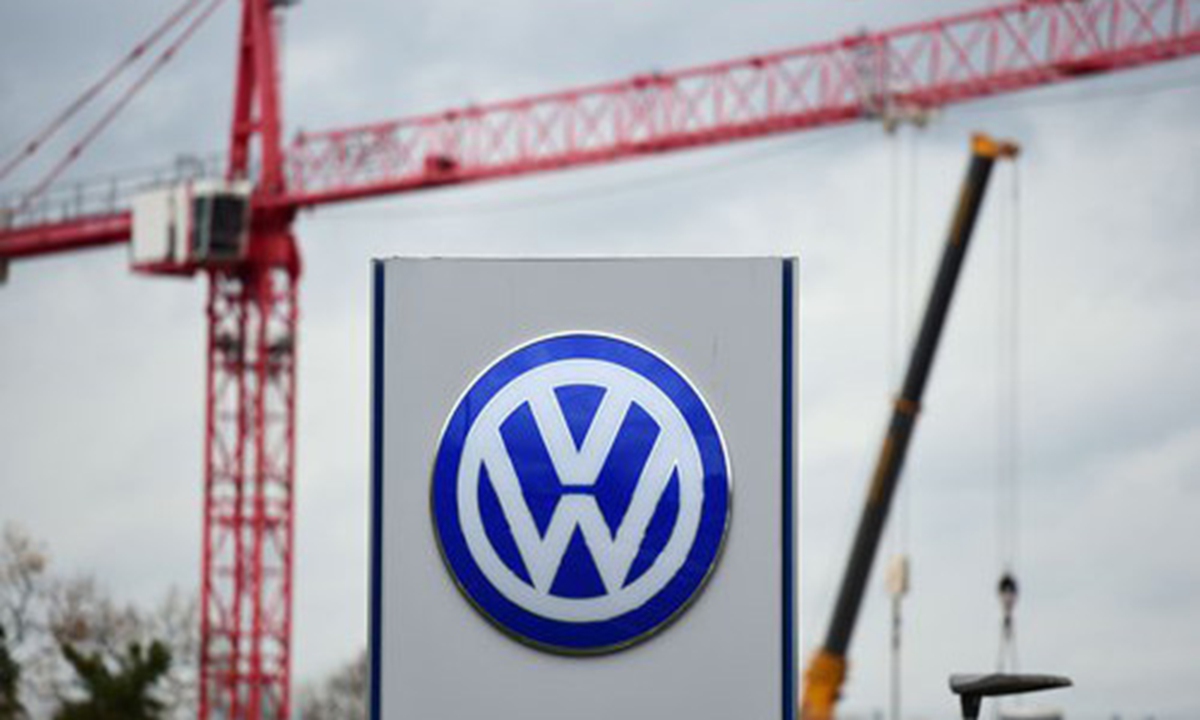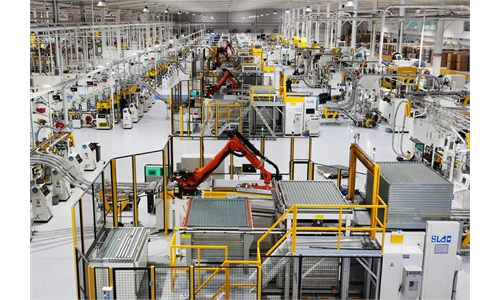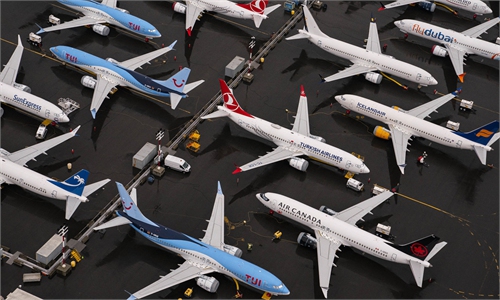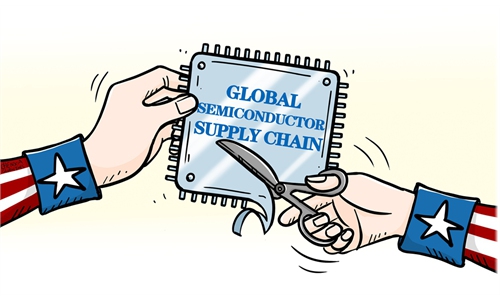
The Volkswagen stands near the cranes of a construction site in Wolfsburg, Germany. File photo: CFP
Mounting pressure on multinational companies with facilities in Northwest China's Xinjiang Uygur Autonomous Region has not only shown how far the West will go to disrupt the stability and prosperity of Xinjiang, but it is also a reminder of the urgency to make Xinjiang manufacturing an indispensable part of the global supply chain.Volkswagen is facing increasing pressure to ditch a joint venture in Xinjiang, The Wall Street Journal reported on Thursday, as two incidents appear to have brought the German carmaker again under Western geopolitical scrutiny in the name of "forced labor."
After a newspaper alleged that "forced labor" was used to construct a testing track at Volkswagen's Xinjiang factory, another report emerged stating that the US had impounded thousands of Volkswagen's Bentley, Porsche and Audi vehicles at US ports because the cars contained a part manufactured by a Chinese supplier on a sanctions list for utilizing "forced labor" in Xinjiang.
While Volkswagen is currently facing significant challenges in balancing geopolitical tensions and business decisions, it is no secret that the renewed pressure on the carmaker is primarily targeting Xinjiang manufacturing. The accusation of "forced labor" in Xinjiang is the largest international lie concocted by certain Western forces in the 21st century. Their aim is to suppress key industries in Xinjiang by spreading false claims and preventing global businesses from engaging in normal trade with the region, leading to forced unemployment.
However, the reason why Volkswagen had the courage to build a factory in Xinjiang despite Western pressure goes beyond China being an important market. Volkswagen deliveries rose by 13.3 percent year-on-year in January to 698,200 units, with China being the leading growth region, according to Reuters. But more importantly, the carmaker is pragmatic enough to recognize falsehoods and is trying to prove its innocence through various means, including commissioning an independent third party to investigate the known facts in Xinjiang.
Whether or not Volkswagen can withstand the new wave of Western pressure, it won't stop China from strengthening and consolidating Xinjiang's manufacturing edge for the purpose of the region's prosperity and stability. It is fallacious of someone to assume that they can intimidate investors interested in Xinjiang by putting pressure on Volkswagen. This is because the development opportunities in Xinjiang are unprecedented and obvious to all; otherwise, it would not have attracted a continuously increasing influx of foreign investment. If anything, Volkswagen is just one of many investors that see the investment value in Xinjiang manufacturing.
Despite geopolitical pressure from the West, Xinjiang's actual utilization of foreign investment reached $681 million in 2023, an increase of 48.26 percent year-on-year. The region's total trade surpassed a historic 357 billion yuan ($50.25 billion), surging 45.9 percent, according to Urumqi Customs. The trade growth ranked second among all provincial-level regions across the country.
The reason why Xinjiang is widely seen as China's next manufacturing hub with the potential for sustained development, despite Western smears, is because of its numerous manufacturing advantages. For instance, with the deepening cooperation under the Belt and Road Initiative, the strategic position of Xinjiang has become prominent, and it is expected to become an important gateway for China's opening to Central Asia, West Asia and Europe.
Xinjiang's manufacturing sectors are characterized by high levels of technological innovation and research and development, encompassing traditional industries such as oil and steel, as well as new energy, chemicals and machinery. Such a diverse and robust manufacturing base lays the foundation for Xinjiang to become an important part of Chinese manufacturing.
All investments, trade and manufacturing development in the region serve as a reminder that, while disproving false accusations, it is crucial to create favorable conditions for Xinjiang's development and facilitate the integration of its manufacturing sector with the rest of China. Xinjiang needs to first become an indispensable part of the Chinese supply chain before becoming indispensable in the global supply chains. This is the only way to make the region a magnet for foreign investment amid geopolitical undercurrents.



